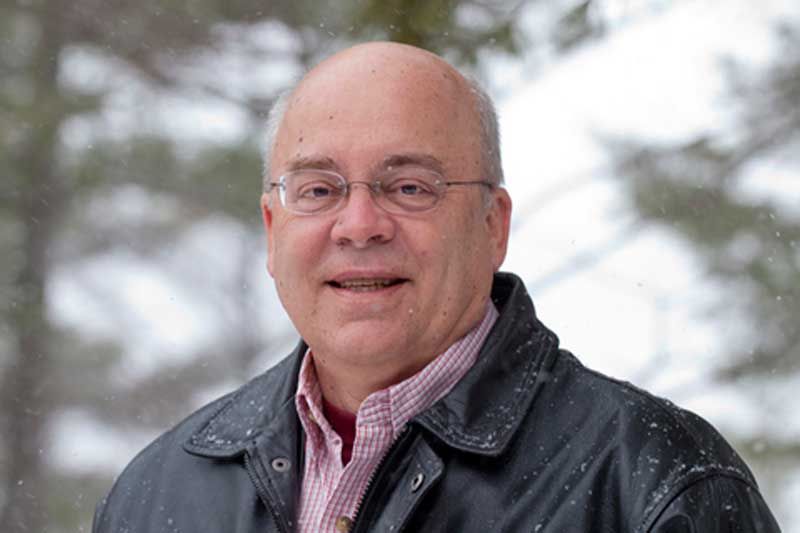Jeff Green | Dec 10, 2014
Much like some of the animals, plants and watersheds that it is devoted to protecting and fostering, the Frontenac Stewardship Foundation (FSF) has had to evolve quickly in order to survive in a changing environment.
In its case that environment has not been a natural one, but a bureaucratic and financial one.
The foundation began its life in the 1990s as the Frontenac Stewardship Council, a creation of the Ontario Ministry of Natural Resources (MNR). The ministry was pulling its own staff out of some of the educational and stewardship work it had been involved with, and turning that over to volunteers from local communities. The stewardship councils, which were established in rural counties throughout Southern Ontario, were funded to the tune of $25,000 each year as seed money for stewardship projects, plus they had access to a full-time stewardship co-ordinator, an MNR employee who provided administrative support, access to ministry resources, and knowledge about and skills in obtaining grants from a variety of government and non-government sources.
Over time, the Frontenac Stewardship Council became a meeting ground for enthusiasts from all four Frontenac townships, and sponsored workshops and various projects throughout the county, supporting lake associations as they developed lake plans, and supporting property owners interested in maintaining and improving their lands as habitat for a variety of species.
About three years ago, the Ministry of Natural Resources, facing cuts to their own budget, cut its ties with the stewardship councils, pulling funding as well as staffing. The Frontenac Stewardship Council had set up a not-for profit charitable foundation years earlier in order to attract more funding and to be able to offer tax receipts, and when the ministry pulled out the Council morphed into the FSF.
In the post-ministry era the FSF has continued to operate, and after its Annual General Meeting (AGM) on November 27, its president, Gord Rodgers, said he is more optimistic about the future of the foundation than he has been over the past 18 months.
He points to a successful grant application for $5,000 towards public events from the Community Foundation of Kingston and Area, and the possibility of a grant from the Ontario Trillium Foundation, as well as an improving relationship with Frontenac County as reasons for optimism.
He was also buoyed by the outcome of the AGM, which was a day-long event attended by representatives from a number of local and regional organizations that the FSF has been working with on stewardship project. Groups such as the Centre for Sustainable Watersheds, the Frontenac Arch Biosphere, stewardship council reps from across the region, as well as Frontenac County, represented by Warden Dennis Doyle, all talked about work they have been doing over the last few months.
The foundation is planning to sponsor seminars in 2015 on the Cameron Bog, the Cataraqui wetland, and the Kennebec watershed, among others, and is hoping to embark on a major project on invasive species in Frontenac County.
Also in the spring of 2015 a tall grass project, funded by Shell Canada, will get underway on a property on Wolfe Island. The project is aimed at improving habitat for Bobolinks on the island by re-introducing native grasses.
The foundation has enough money to maintain a part-time employee, Bret Colman, who provides administrative support and fundraising and grant-writing expertise. Colman was at one-time a stewardship co-ordinator with the MNR and later was a resort owner in Frontenac County, which gives him a background in stewardship and commerce.
At the AGM, a proposal was put forward for the foundation to undertake a comprehensive invasive species strategy in Frontenac County. The idea behind the strategy is to apply provincial strategies at a local level, always using communication and education as tools instead of calling for new regulations and restrictions.
The foundation plans to engage a range of groups, in particular Frontenac County, to bring this about.
An application has gone in to the MNR for a grant to use the Elbow Lake Environmental Centre in South Frontenac as the location of a pilot study for the strategy.
More Stories
- Province clarifies stance - Says Private Well Water Testing Will Continue
- Frontenac County Stays Internal for CAO - Appoints Kevin Farrell
- Addington Highlands Tax Bill Going Up 6.93%
- Perth Road United Church Donation to The Grace Centre
- 21 Years Of Dump Life Left At South Frontenac Waste Site
- Eclipse 2024 – Once In A Lifetime
- National Tourism Week
- NeLL Spring Open House and Anniversary Concert
- 25 years at Bishop Lake Outdoor Centre
- Grounds Contracts Down, Custodial Contracts Up In Central Frontenac

